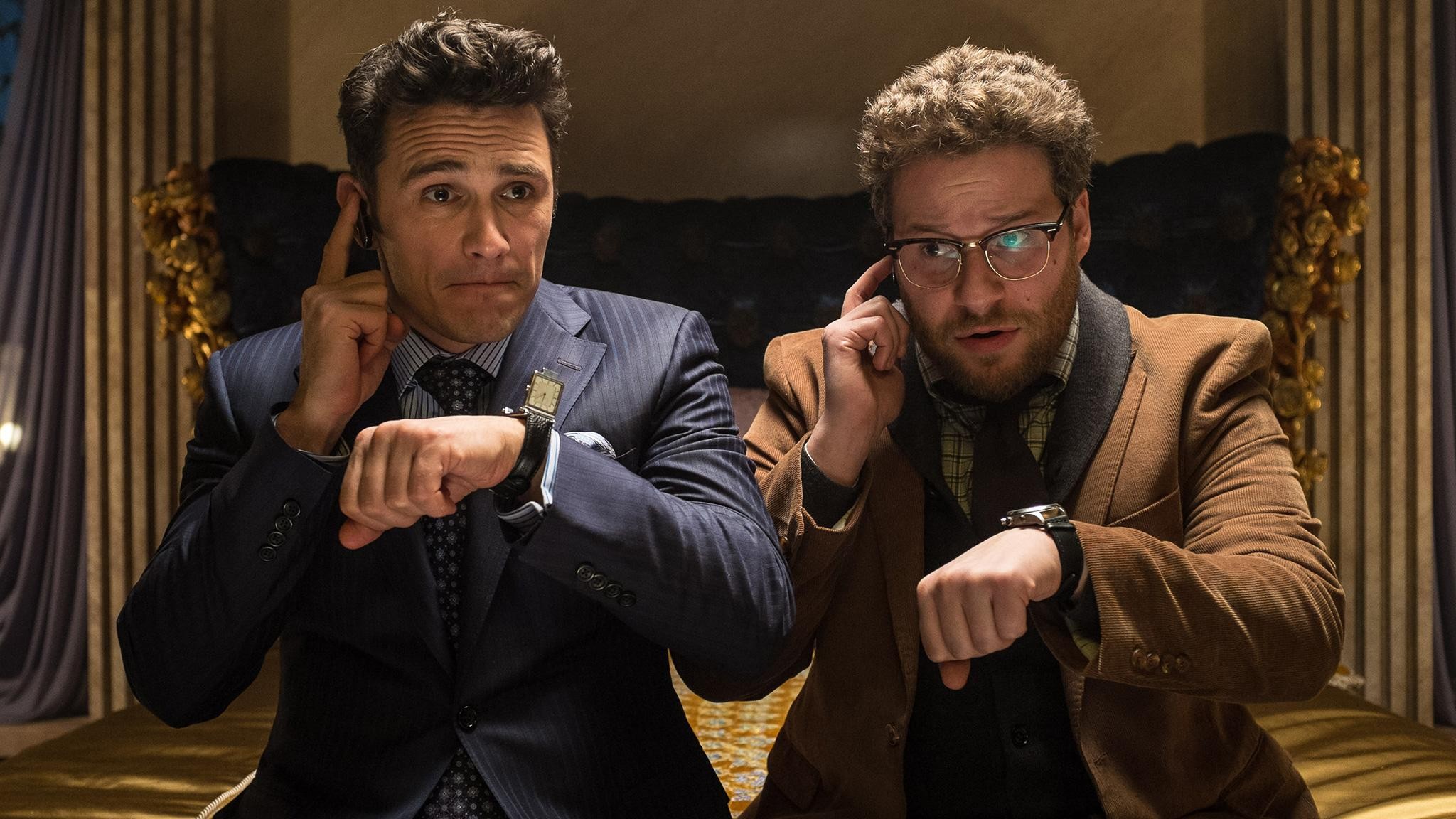
The Internet has been blazoned by the somewhat phenomenon of The Interview starring Seth Rogen and James Franco. The comedic performances have done more than shake crowds with laughter; it has shaken the global community in a less pleasing way. Despite mixed reviews, the effect that this movie has been able to generate is perfectly summed up in the words of The Guardian’s Jordan Hoffman, “If production of The Interview was what truly inspired the hack that brought Hollywood to its knees, well, there’s a degree of beauty to that. Rogen and Franco are two of America’s finer bumbling man-children, and if this unessential but agreeable movie really triggered an international response, this is life reflecting art in a major way.”
The cyber-hacking group known under the umbrella of “The Guardians of Peace,” targeted Sony directly to hinder any attempts of this movie being shown. But what is the point of this outcry for a comically delusional satire?
When one puts together Seth Rogen and James Franco, no one can deny the natural understanding of an outrageous duo (“Freaks and Geeks,” anyone?). It is almost illogical to view this type of film in serious context. However, the results of the detriments that this movie has caused to Sony and the strained international relations with North Korea are apparent. Yet, through the press that this movie has been able to procure, it is ironic that more fame builds for the film rather than deterring people from seeing the movie.
The disapproval that this film has created for itself comes with the notion that this movie is provoking a serious social injustice against North Korea (once again, this injustice is supposedly spurred on by Seth Rogen and James Franco). If consumers truly wanted to get a genuine insight into the framework of life and struggles in North Korea, there are a multitude of documentaries available by more prestigious individuals in the field, such as Lisa Ling’s Inside North Korea. The bottom line is that this movie is another satire with The Hollywood Reporter rating it, “average of a mediocre-to-average Saturday Night Live sketch.” In the same category as Borat and Canadian Bacon, The Interview checks itself on the list of satires by the North American perspective.
Similarly to Borat, The Interview has been able to fight through international objection and has been able to gain sales, despite being pulled from major theatres. Through the aid of mediums, such as YouTube, independent theatres and not to forget about the 900 000 torrent downloaders (Variety, 2014), this movie has been able to generate monetary and social support. Consumers are being sucked into the defiant and exclusive nature surrounding the film. In a capitalistic world, it seems that it is truly the consumers who get to decide.
